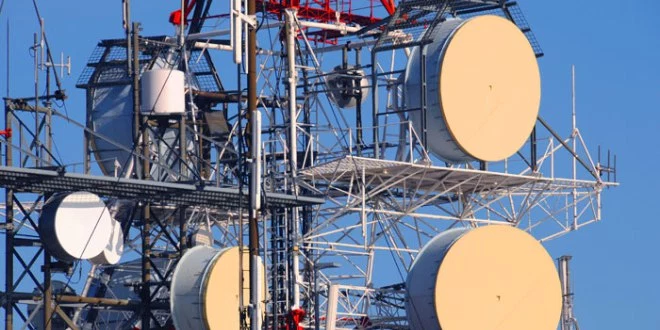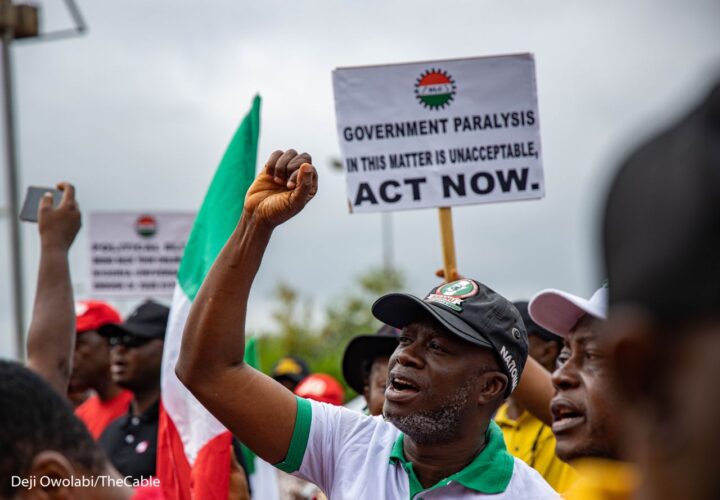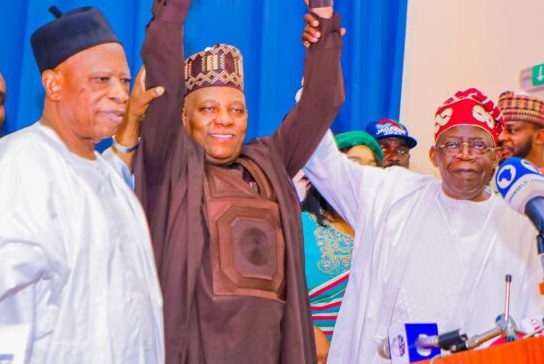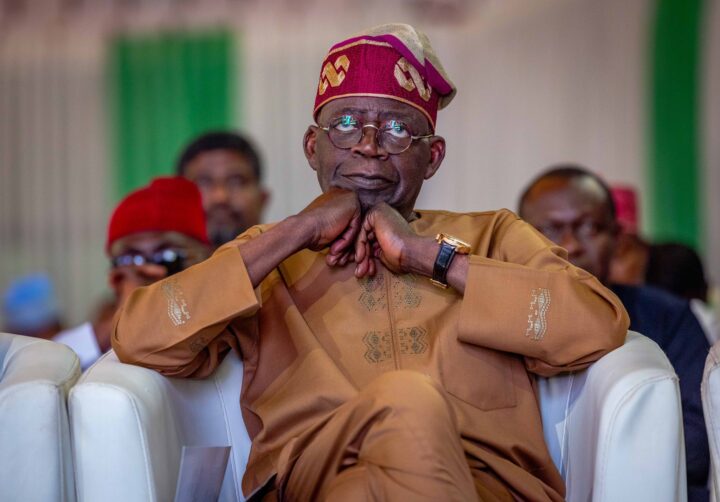Two evils remain insidiously inimical to any industry. They are very much alive in the telecommunications industry, like Prometheus unchained, ready to do damage any time. They are multiple taxation and regulatory capture. For any business, the knowledge of the existence of this twin evil remains the beginning of wisdom, and the planting of a small seed that will yield a great harvest.
At some point we shall revisit regulatory capture and what it has done to some industries in Nigeria under this administration that is winding down, while we let the other evil, multiple taxation, enjoy an ignoble attention in this write up.
An industry that drinks from the harmful cocktail of taxes is said to Labour under multiple taxation. No industry exemplifies that more than the telecommunications industry which, because of noticeable successes in nearly all parts of the world, is subjected to a different bouquet of taxes. Those looking for euphemism, a beautiful wrap to decorate a bad situation, call it harvesting the low hanging fruits. Oh, the low hanging attractive fruits that arrest the eyes, to the extent, that you must easily pluck them for relished demolition.
Multiple taxation hurts very badly and investors view it with red eyes like mother-hen looking at the young chick in the fire.
Advertisement
This is the reason that at this particular time, when so many things are seemingly very wrong with the nation: extensively failed elections, bad economic policies inducing untold pain, a despondency akin only to the one we saw during the civil war, and young lives forced into perennial uncertainty and flight from their country, one man, and a very unlikely one for that matter, is enjoying a rave of appreciation. Dr Isa Pantami, Minister of Communications and Digital Economy, is having a good time under the sun.
When I spoke to Gbolahan Awonuga, Director, Operations at ALTON (Association of Licensed Telecommunications Operators of Nigeria), he was full of praise for the Minister, saying, “We thank the Honourable Minister for seeing this through. We also thank the regulator, the Nigerian Communications Commission (NCC) for supporting the industry at this time.”
Let’s explain the source of Gbolahan’s excitement. Members of his association wear the shoes and they know where they hurt very badly. In August last year, the Nigerian government introduced new excise duty that would be collected from the various industries. There was general outrage but the telecommunications operators cried out that since they wouldn’t want to die under a welter of taxes, they would have to pass the 5 per cent excise duty to the subscribers.
Advertisement
Granted that at this particular time, a government lacking the creativity of sparking the economy could easily resort to a new irritating tax, the truth had to be told that the telecommunications industry was already drowning in taxes. Monday night, Gbolahan supplied this writer a list which ranges from the obvious to the very ridiculous, including: way leave, water way, community access fee and shop rate. They are 41 in all.
And gbam!!! A desperate government added another 5 per cent excise duty.
Gbolahan explained the implications with an inconvenient math. Recall that VAT was recently increased to 7.5 per cent. The excise duty of 5 per cent would have brought total charges on service to 12.5 per cent! Please know that the duty would have been imposed on your calls. Every call, local and international.
Where is the protection for the poor woman in the village? Where is the cover for my old grandmother? Gbolahan asked.
Advertisement
Pantami provided the answer last week, and the answer came with lots of hope and refreshing optimism. Hear him.
“I am happy to report to you that President Muhammadu Buhari, GCFR, has approved the exemption of the digital economy sector from the five per cent excise duty to be paid and this is because of the strength of the argument presented to him by the Committee that additional burden on telecom sector will increase the sufferings of Nigerians and the other sectors that are not making as much contribution to the economy should be challenged to do more and pay the 5 per cent excise duty,” Pantami said.
The minister headed the Committee which made a compelling case to the President. The Committee probably reclined its weight on the local adage that it is unwise to kill the goose that lays the golden egg. The telecom sector was already doing more than enough. The sector provides the super structure that carries the weight of every sector of the economy, and even politics and political decisions. 2022 second quarter contribution to the GDP by the digital economy sector, which includes telecommunications, stands at 18.44 per cent. Quarterly revenue generation has jumped to N480bn from 51bn previously, according to Pantami.
In spite of the rise in cost of doing business in Nigeria, and a visibly challenged economy, the sector has not increased rates in terms of service provision, and has also continued to generate very good paying jobs.
Advertisement
Gbolahan says “power determines everything.” The minister affirms this by saying that the telecom sector has over 32,000 generators in various base stations across the nation. With the price of a litre of diesel standing at about N850, it is benumbing to think of how much is used to power the generators daily and be able to provide their bouquet of services to their subscribers.
In this instance, the minister got it right. The telecommunications sector is overburdened with all kinds of payments, including legitimate taxes and hush payments to stop some village heads and area boys from making trouble and disturbing their service rollout. The field of play is challenged and made very vulnerable by all kinds of coercions which succeeding legitimate governments have not been able to deal with.
Advertisement
In spite of a bright score, the minister needs to do some more. Payments to the various governments, from local government councils to states and the federal government, are way too much. There has to be a concerted effort to streamline all of them and make such payments more convenient and less painful.
Besides, under the Buhari administration the telecommunications sector has witnessed a plunge in fortunes. The regulator of the industry has fallen from its apogee of importance to some low-level struggle for existence and relevance. I am not fascinated by the hand-pumping and claims of achievements based on whimsical submissions. There will come a time for profiling and a shout for help to restore the regulator to its once enviable status of importance at the local and international level.
Advertisement
For the time being, the case at hand is like the story of half bread or say, the taste of half bread, which is better than no taste at all. The industry can now begin to ask for more from this platform of very humble achievement, from the Minister and the regulator, to do the industry more good and excite it for more economic activities and creativity.
The extortioners of Suleja
Advertisement
Suleja, which is a border town between Abuja and Niger State, is less than twenty five minutes drive from the Federal Capital Territory (FCT). The drive is so short that my friend calls the distance throw stone instead of stone throw, that is, if you enjoy the local adage. In the days of yore, Suleja provided an attractive stop for travellers going up north. The coming of Abuja has stripped it of that importance, relegating it to a miserable background. But should that be responsible for the nastiness playing out at Suleja? Those who live at Suleja will hardly know that they don’t live in Abuja but in Niger State. However, Abuja visitors to Suleja endure all kinds of bestial treatment in the hands of vehicle inspector officers, supposedly. Two young ladies I know have suffered the same fate within two weeks and they tell the same story. They simply seize their vehicles in traffic, point out a non existent infraction, and the journey of pain begins from there. They don’t seem to recognise Abuja vehicle papers, so some kind of payments must be made to them to process their papers for you. Yesterday, one of them cried out to me. They extorted N14,600 from her but only gave receipt for N2,000. A Niger State VIO officer Who was kind enough to speak to me on phone said the people belong to a different arm of government but only wear our uniform to carry out their operations. Should I call it nefarious operations? Who is in charge of these criminals on the road, please?
Views expressed by contributors are strictly personal and not of TheCable.
Add a comment







